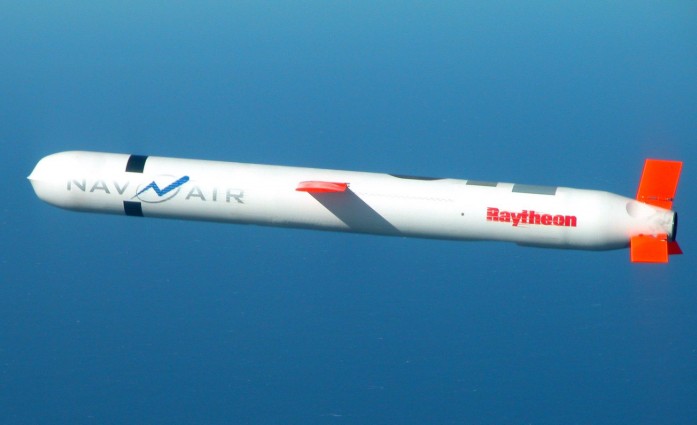Russia Unfazed by Tomahawk Missiles in Ukraine, Analysts Say
Russia has dismissed the idea that American Tomahawk missiles could tip the balance in Ukraine, despite repeated suggestions from US President Donald Trump.
Almost a year ago, Trump promised to end the Ukraine War “on Day One” if elected, claiming the conflict “would have never happened” under his watch.
Fast forward, and the president has shifted from dismissing Ukraine’s military capacity to suggesting it could reclaim lost territory.
Trump’s recent remarks have surprised many observers, particularly his hints that Ukraine might receive US Tomahawk cruise missiles to target Russia.
Trump’s Strategic Bluster
In recent weeks, Trump has authorised intelligence sharing to help Ukraine strike sensitive Russian energy sites. He has also urged NATO countries to shoot down Russian planes violating European airspace.
“He might send America’s vaunted Tomahawk cruise missiles to Ukraine so that those weapons can be used to more effectively attack targets within Russia,” Trump added, signalling a marked departure from his previous stance of peace with Moscow.
Experts, however, remain sceptical. Many say Trump’s threats are largely rhetorical. “The chances of Trump actually sending Tomahawks to Ukraine are slim,” Reuters reports.
His previous focus on negotiating peace and resetting relations with Russia seems to limit any real appetite for escalating the conflict.
A Bid for Leverage, Not War
Trump’s approach appears to be an attempt to gain negotiating leverage rather than a genuine plan to supply new weapons.
Frustrated with the slow pace of peace talks, the president hopes that the mere threat of Tomahawks might nudge Putin toward diplomacy.
“He wants it. And Trump certainly doesn’t want to send more equipment and money to the black hole that is Ukraine.
But he thinks that by threatening to do so, in a clear reversal of his previous stance, it will nudge Putin into a more conciliatory position,” analysts note.
Russian Deputy Foreign Minister Sergey Ryabkov:
– The powerful momentum generated by the Alaska summit in favor of a Ukrainian settlement has been pretty much exhausted;
– The delivery of Tomahawk cruise missiles to Ukraine would significantly change the situation, but… pic.twitter.com/XeFZnA6h17
— Status-6 (Military & Conflict News) (@Archer83Able) October 8, 2025
Yet Russian President Vladimir Putin is unlikely to be swayed. A strategist by training, Putin has a more nuanced understanding of the situation than his Western counterparts. Empty threats, experts say, carry little weight.
The Reality of Tomahawk Missiles
Military analysts in Washington, Kyiv, and Moscow agree: Ukraine cannot realistically use Tomahawks.
For starters, the country lacks the launch systems required. Tomahawks are fired from US warships, submarines, and B-52 bombers—equipment Ukraine does not possess.
Adapting these missiles for ground deployment would take years, require extensive training, and demand US personnel involvement. There is also the risk of provoking Russia into a severe retaliatory strike.
Even if the missiles could be used, they rely on US-controlled GPS and targeting data. Any strike would need Pentagon approval, leaving Ukraine with limited operational autonomy.
Logistics present another challenge. The US maintains a finite stockpile of Tomahawks, prioritised for conflicts in the Middle East and South America.
Production rates are slow, making sustained supply to Ukraine highly impractical. Moscow has warned that supplying Tomahawks would constitute a “red line,” potentially escalating the war and bringing NATO closer to direct confrontation.
Trump’s Track Record of Empty Threats
History suggests Trump rarely follows through on such statements. Known by some Democrats as “TACO” (Trump Always Chickens Out), he has repeatedly made bold threats against China, North Korea, and elsewhere that never materialised.
In reality, Trump has little desire for open conflict. Putin is well aware of this, analysts say. Rather than pursuing actual missile transfers, the president is likely using the rhetoric to project strength while maintaining flexibility.
For Ukraine, Tomahawks remain a distant possibility rather than an imminent game-changer. The Kremlin remains confident and unshaken, while the US continues to weigh strategic priorities carefully.
In the chess game of modern warfare, rhetoric alone rarely shifts the balance on the ground.






